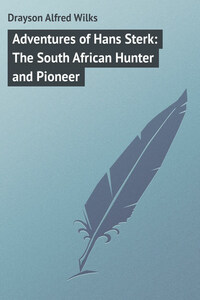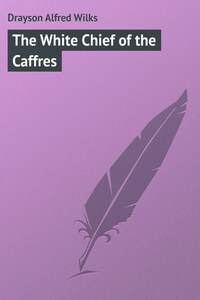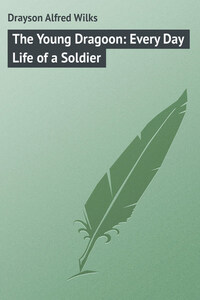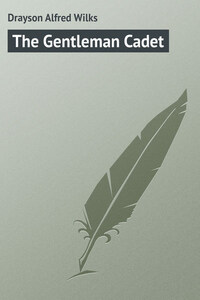In the history of colonisation there is probably no example on record so extraordinary as that of the emigration from the colony of the Cape of Good Hope, in 1835, of nearly six thousand souls, who, without guides or any definite knowledge of where they were going or what obstacles they would encounter, yet placed their all in the lottery and journeyed into the wilderness.
The cause of this emigration was to avoid what the emigrants considered the oppression of the ruling Government, and the object was to found an independent nationality in the interior of Africa.
These emigrants, shortly after quitting the neighbourhood of the Cape colony, were attacked by the chief of a powerful tribe called the Matabili, into whose country they had trespassed. Severe battles, in which overwhelming numbers were brought against them, were fought by the emigrants, the general results being victory to the white man.
Not satisfied with the situation which these victories might have enabled them to secure, a party of the emigrants journeyed on towards the east, in order to obtain a better position near the present district of Natal. This party were shortly afterwards either treacherously massacred by a Zulu chief named Dingaan, or were compelled to fight for their lives and property during many months.
It is mainly amidst these scenes that the hero of the following tale passed – scenes which brought out many cases of individual courage, daring, and perseverance rarely equalled in any part of the world.
Around the bivouac fire, or in the ride over the far-spreading plains, or whilst resting after a successful hunting track in the tangled forest, the principal events of this tale have been recorded. From Zulu and Boer, English emigrant and Hottentot driver, we have had various accounts, each varying according to the peculiar views of the relater, but all agreeing as regards the main facts here blended and interwoven into a tale.
Chapter One.
Introduction to the Hunters – Death of the Lion – Discovery of the Elephants by Hans Sterk
Near the outskirts of a far-extending African forest, and close beside some deep shady-pools, the only remnants of a once rapidly flowing river, were seen one glowing summer’s evening, shortly after sunset, a party of some ten men; bronzed workmen-like fellows they were too, their dress and equipment proclaiming them hunters of the first class. This party were reclining on the turf, smoking, or giving the finishing touch to their rifles and smooth-bore guns, which they had been engaged in cleaning. Among this party there were two black men, fine, stalwart-looking fellows, whose calm demeanour and bright steady gazing eyes, proclaimed them men of nerve and energy. One tiny yellow man, a Hottentot, was remarkable among the group on account of his smallness, as he stood scarcely more than five feet in height, whereas all his companions were tall heavy men. A fire was brightly blazing, and several small tin vessels on this fire were steaming as their contents hissed and bubbled. The white men who composed this party were Dutch South African Boers, who were making an excursion into the favourite feeding-grounds of the Elephant, in order to supply themselves with ivory, this valuable commodity being to them a source of considerable wealth.
“It will soon be very dark,” exclaimed Bernhard, one of the Boers, “and Hans will have difficulty in finding our lager; I will go on to the headland and shoot.”
“You may leave Sterk to take care of himself,” said Heinrich, another Boer, “for no man is less likely to lose himself than he is.”
“I will go and shoot at all events,” said Bernhard, “for it can do no harm; and though Hans is quick and keen, watchful and careful, he may for once be overtaken by a fog or the darkness, and he does not well know this country.”
With this excuse for his proceeding, the man called Bernhard grasped his large-bored gun, and ascended a krantz which overhung the resting-place of his party, when, having reached the summit, he placed the muzzle of his gun within a foot of the ground, and fired both barrels in quick succession. This is a common signal amongst African hunters, it being understood to mean, that the resting-place at night is where the double shot is fired from.
There being no reply to this double shot, Bernhard returned to his companions, and the whole party then commenced their evening meal.
“So your sweetheart did not reply to you, Bernhard,” said one of the Boers, “though you did speak so loudly.”
“Hans Sterk is my sworn friend, good and true,” replied Bernhard; “and no man speaks lightly of him before me.”
“Quite right, Bernhard, stand to your friends, and they will stand to you; and Hans is a good friend to all, and few of us have not been indebted to him for some good turn or other; but what is Tembili the Kaffir doing?”
At this remark, all eyes were directed towards one of the Kaffir men, who had risen to his feet, and stood grasping his musket and looking eagerly into the forest near, whilst his dark companion was gazing fixedly in the same direction. It was a fine sight to observe this bronzed son of the desert at home and on the watch, for he did seem at home amidst the scenes around him. After a minute’s intent watching, he raised his hand, and in a low whisper said, “Leuew, Tao,” (the Dutch and Matabili names for a lion). “Leuew!” exclaimed each Boer, as he seized his weapons, which were close at hand and stood ready for an emergency.











